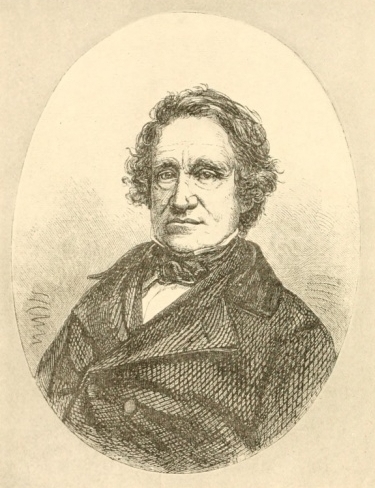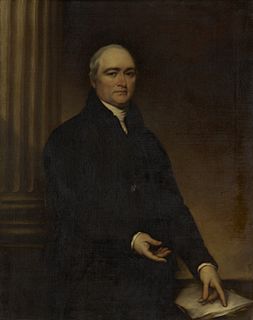
Timothy Dwight was an American academic and educator, a Congregationalist minister, theologian, and author. He was the eighth president of Yale College (1795–1817).
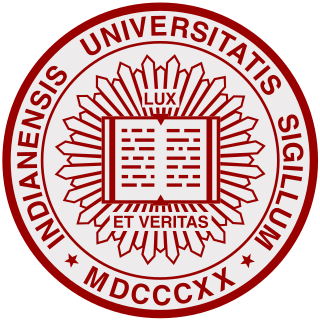
Indiana University Bloomington is a public research university in Bloomington, Indiana. It is the flagship institution of the Indiana University system and, with over 40,000 students, its largest university.

Andover Theological Seminary is located in Newton, Massachusetts. Andover Theological Seminary and Newton Theological Institution merged formally in 1965 to form the Andover Newton Theological School.
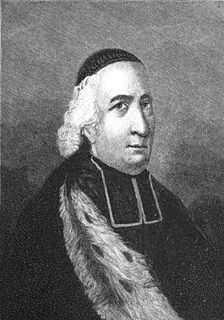
Louis William Valentine Dubourg was a Sulpician bishop of the Roman Catholic Church in the early years of the United States in St. Louis, Missouri, and later an Archbishop in France.
Mid-America Reformed Seminary is a graduate level theological institution located in Dyer, Indiana, offering a biblical and theological education in the classic Reformed (Calvinistic) tradition. The seminary offers a three-year Master of Divinity degree program for students seeking ordination. A two-year Master of Theological Studies degree is offered for students who desire a theological education without seeking the ordained ministry.

Benjamin Morgan Palmer, an orator and Presbyterian theologian, was the first moderator of the Presbyterian Church in the Confederate States of America. As pastor of the First Presbyterian Church of New Orleans, his Thanksgiving sermon in 1860 had a great influence in leading Louisiana to join the Confederate States of America. After 1865 he was minister in the Presbyterian Church in the United States.
Bryan Chapell is an American pastor and theologian. He is the Senior Pastor of Grace Presbyterian Church in Peoria, Illinois. Prior to that he was President of Covenant Theological Seminary in St. Louis, Missouri for eighteen years. Chapell is also an author, lecturer, and conference speaker specializing in homiletics. He served as Moderator of the Presbyterian Church in America in 2014.
Andover Newton Theological School (ANTS) was a graduate school and seminary in Newton, Massachusetts. Affiliated with the American Baptist Churches USA and the United Church of Christ, it was an official open and affirming seminary.

Wylie House is a historic structure built in 1835 and located in Bloomington, Indiana. It was home of Andrew Wylie, first president of Indiana University, until his death in 1851. In 1859, following the death of Andrew's widow Margaret, Theophilus Adam Wylie, professor at Indiana University and half-cousin to Andrew, purchased the house from their heirs and his family resided there until his widow's death in 1913. Today Wylie House is operated as an historic house museum by Indiana University Libraries to interpret the lives of these families.

James Waddel Alexander was an American Presbyterian minister and theologian who followed in the footsteps of his father, Rev. Archibald Alexander.
Lemuel Moss served as the sixth president of Indiana University, being the last of a long line of six "Preacher Presidents."

Andrew Wylie was an American academic and theologian, who was president of Jefferson College (1811–1816) and Washington College (1816–1828) before becoming the first president of Indiana University (1829–1851).

Samuel Miller was a Presbyterian theologian who taught at Princeton Theological Seminary.
Theophilus Adam Wylie (1810–1895) was a Presbyterian minister, college professor, and president pro tempore of Indiana University.
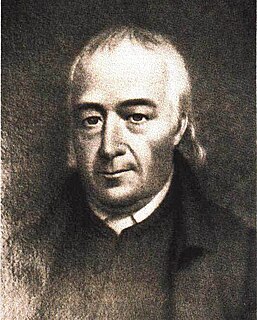
John McMillan was a prominent Presbyterian minister and missionary in Western Pennsylvania when that area was part of the American Frontier. He founded the first school west of the Allegheny Mountains, which is now known as John McMillan's Log School. He is one of the founders of Washington & Jefferson College
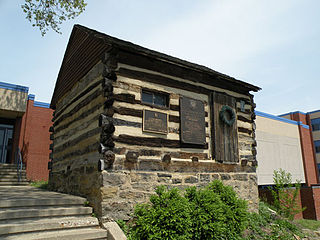
The history of Washington & Jefferson College begins with three log cabin colleges established by three frontier clergymen in the 1780s: John McMillan, Thaddeus Dod, and Joseph Smith. The three men, all graduates from the College of New Jersey, came to present-day Washington County to plant churches and spread Presbyterianism to what was then the American frontier beyond the Appalachian Mountains. John McMillan, the most prominent of the three founders because of his strong personality and longevity, came to the area in 1775 and built his log cabin college in 1780 near his church in Chartiers. Thaddeus Dod, known as a keen scholar, built his log cabin college in Lower Ten Mile in 1781. Joseph Smith taught classical studies in his college, called "The Study" at Buffalo.

The Millen House is a historic residence on the campus of Indiana University in Bloomington, Indiana, United States. Built by an early farmer, it is one of Bloomington's oldest houses, and it has been named a historic landmark.

George Arthur Buttrick was an English-born, American-based Christian preacher, author and lecturer.
Philip Amos Amerson is a theological educator, pastor and social researcher. He served as president of Garrett-Evangelical Theological Seminary and the Claremont School of Theology.
Eli P. Farmer was an American pioneer preacher for the Methodist Episcopal Church and a circuit rider on the Indiana frontier from 1825 to 1839 during the Second Great Awakening. He also served in the Indiana Senate from 1843 to 1845. In addition, the Kentucky native became a Bloomington, Indiana, farmer, editor of the Bloomington Religious Times, and businessman. Farmer served as a captain in the Kentucky militia during the War of 1812 and as a self-appointed chaplain during the American Civil War.
